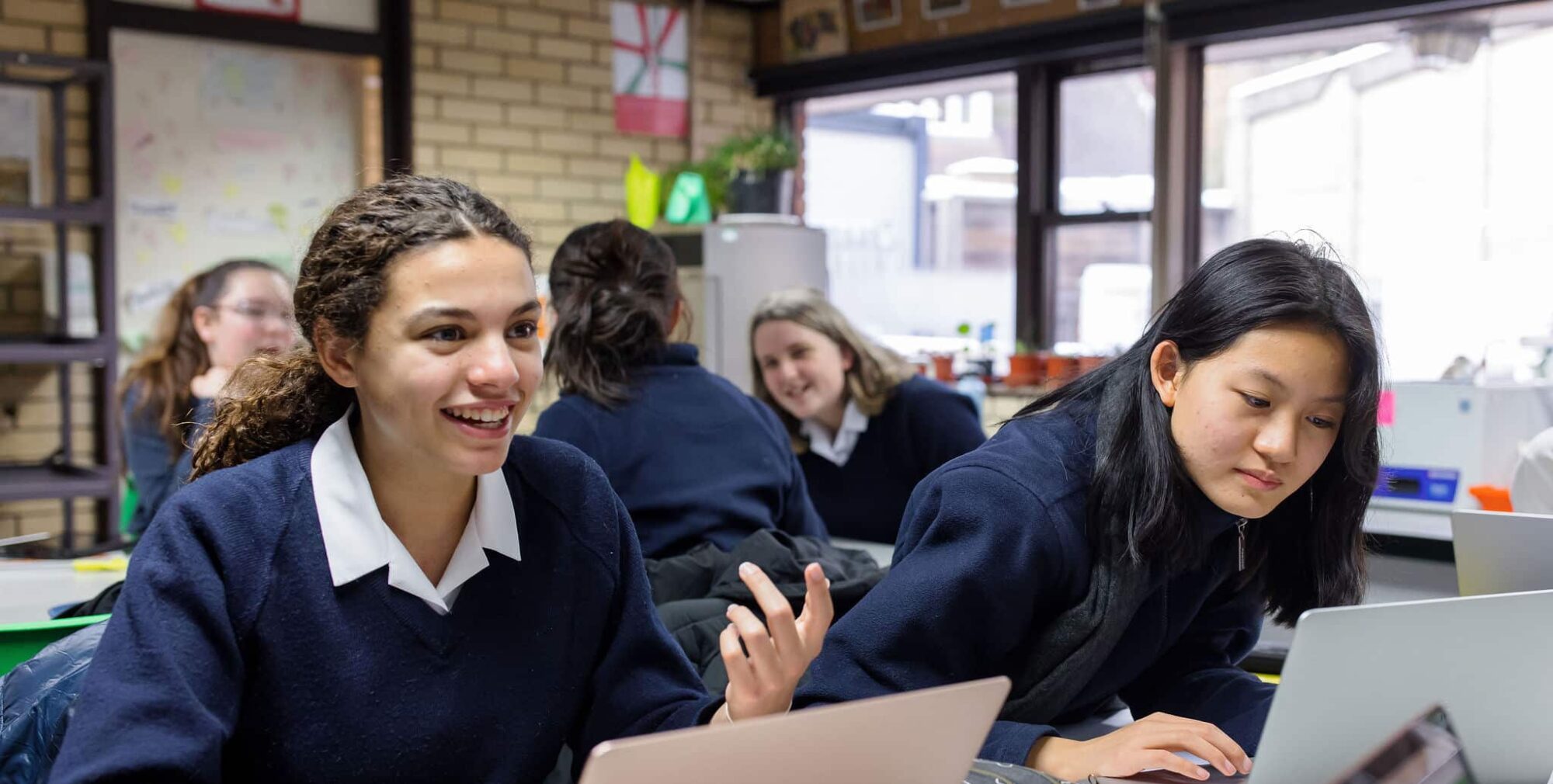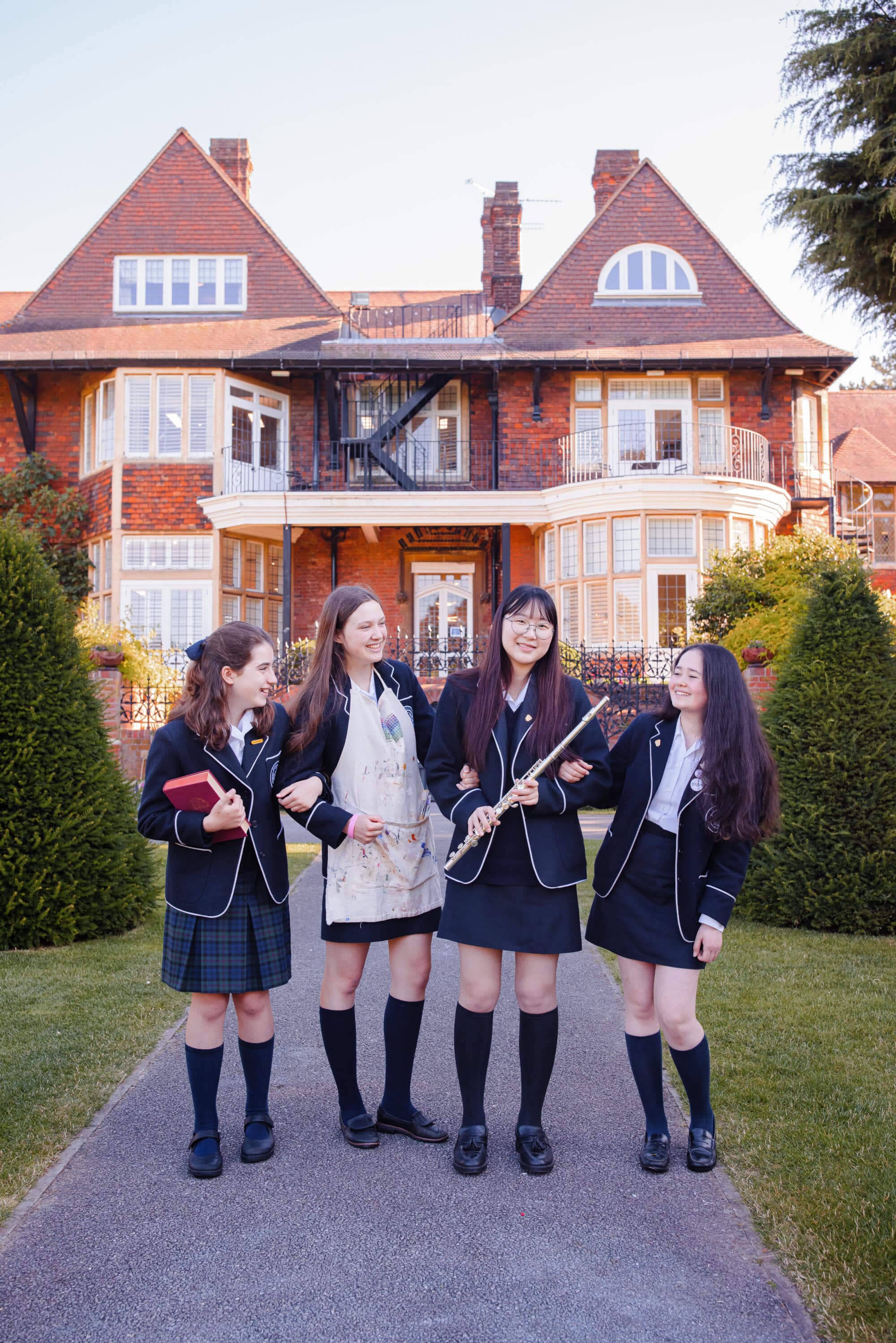The Middle Years Programme
The Middle Years Programme (MYP) at Marymount International School London is an enriching educational experience that encourages personal and intellectual growth in Grades 6 to 10. The MYP curriculum is designed to be student-centred and provides a well-rounded and challenging framework for learning that prepares our girls for success in the future.
Comprising eight subject groups, including Language & Literature, Sciences, Mathematics, and Physical Education, the MYP curriculum fosters deep conceptual understanding and mastery of a suite of skills and attributes. It empowers students to inquire into a range of issues and ideas, encouraging them to become creative, critical, and reflective thinkers through the broad and balanced curriculum.
The MYP curriculum at Marymount is guided by the goal of developing active, self-regulated learners and internationally-minded individuals with empathy for others. Built into the curriculum model, is Service as Action: a wonderful opportunity for students to engage with their whole development. The curriculum connects the subjects studied in the classroom to the world, and through the six Global Contexts, students develop an understanding of global challenges and the ability to face them.
The programme culminates in Grade 10 with a Personal Project: a research project of a subject of their choice. At Marymount International School London, students find their voice, build confidence in their abilities, and learn how to manage their own learning through the MYP. With a focus on helping each girl to pursue a life with purpose and meaning, the MYP provides a strong foundation for future success and prepares our girls to thrive in their later years of education and beyond.
Frequently Asked Questions
The Middle Year Programme: a 5-year programme which forms part of the IB curriculum. The International Baccalaureate® (IB) Middle Years Programme (MYP) emphasizes intellectual challenge. It encourages students aged 11 to 16 to make practical connections between their studies and the real world, preparing them for success in further study and in life.
Having established that GCSE and MYP marking system is comparable and that MYP assessed grade 7 is equivalent to GCSE grade 9, therefore, MYP grade 6 is equivalent to the GCSE grade range 7-8 and so on and so forth.
Universities are only likely to look at MYP grades for subjects such as English, Maths and Science for certain degrees such as law or medicine when they will typically ask for “GCSE or equivalent passes”
The iGCSE means you’re teaching a pre-defined, very straightforward exam with a definite content-based goal. IB programmes are a continuum, and they aim to guide students towards graduating from the Diploma Programme with a certain mastery skill in certain subject areas.



